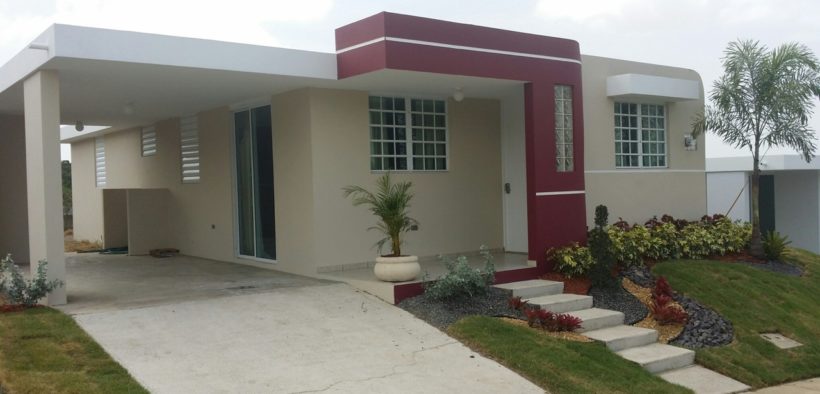Study: STRs not to blame for Puerto Rico’s housing affordability challenges

Puerto Rico’s housing affordability challenges, which have been widely attributed to the sharp proliferation of short-term rental properties (STRs), have much to do with other factors, a study released by the Foundation for Puerto Rico concluded.
A six-month investigation, entitled “The State of Housing in Puerto Rico,” revealed three underlying causes that feed the problem: First, “a sudden reduction in the supply of habitable housing stock after the devastation of multiple natural disasters; second, a long economic decline following the elimination of a federal manufacturing incentive that caused massive loss of well-paying jobs in the areas of the island that had been dependent on that industry”; and third, “a decades-long suburban and car-centric planning that constraints land use.”
The study confirmed that as many as 30% of all housing units in Puerto Rico were damaged by the series of natural disasters that began in 2017 with back-to-back hurricanes. Meanwhile, better paying jobs are concentrated the San Juan metro area, while housing surpluses are in areas with few jobs and where residents are underemployed or have very low incomes.
“These problems are linked because most of the remaining well-paying jobs and new economic growth is occurring in the San Juan metropolitan area, where there is the greatest housing scarcity. In contrast, in the other, generally more rural areas, there may be more housing stock but little economic activity or jobs,” the study indicated.
STRs and the Visitor Economy
The research team examined data related to the STR market and concluded that it comprises about 1.1% (17,711 out of 1.6 million) of the housing units in Puerto Rico. Only four municipalities — Culebra, Rincón, Luquillo and Vieques — have a proportion greater than 7%, the report stated.
“Although concerns about STR-related gentrification and displacement are valid in particular locales — referenced municipalities and a few neighborhoods in San Juan that have significant tourism activity — we assess that it has yet to become a major contributor to overall housing affordability,” the research confirmed.
In 2022, about 40% of all visitors to Puerto Rico stayed in STR properties, which the Foundation for Puerto Rico states makes this type of lodging a “critical part” of the visitor economy.
“The opportunity is particularly important to the depressed economic regions of the island where often there are few or no traditional lodging options available. With the Visitor Economy becoming the most important and resilient source of economic growth for the island, the availability of STR lodging has created a path for robust economic recovery for those depressed regions,” the study stated.
In 2021, Puerto Rico received approximately 3 million visitors from outside the island who spent $4.6 billion, an 11% increase over 2019 visitor expenditures. Overall tourism-related expenditure, including local tourism, approached $7.4 billion and directly generated more than 90,000 jobs.
“In 2022, these numbers improved further with increased lodging revenues of 24% and demand (lodging unit nights) 13%, respectively. The fact that visitor spending grew, notwithstanding the COVID-19 pandemic that suppressed visitation during the intervening period, is evidence of the extraordinary resilience of the Visitor Economy,” according to the study.
While STRs have helped meet the growing demand for lodging in Puerto Rico, the study highlighted the need for regulations to ensure the well-being of community residents.
Currently, two laws indirectly address STRs. The first is Act 272, or the Room Occupancy Tax Law, and the second is Act 129 of 2020, also known as the Condos Law of Puerto Rico. The Puerto Rico Tourism Co. has published regulations with the requirements, frameworks and responsibilities that lodging owners and operators should follow.
However, the study said that “greater awareness of the responsibilities and remedies” to protect citizens “against misuses or abuses of STRs is needed to ensure that this economic opportunity can continue to grow.”
A need for rent control
The study also addressed the need for rent control measures to offset the increase in prices that have been fueled by several factors such as inflation, cost of living increases, and stagnant housing inventory.
“In Puerto Rico, the law is pro-landlord regarding pricing, meaning tenants have no protections beyond their contractual agreement with their landlord. When a landlord decides to increase their rent price, existing tenants have little choice but to pay more or to find another place to live. It is not easy to swiftly evict a renter for non-payment, but neither is it legally tenable for a renter to pay less than the increased rent,” the study states.
At present, there is a measure, House Bill 1242, the “Puerto Rico Income Stabilization Act,” that proposes to mitigate future displacements by controlling excessive and unfair rent increases.













Bull
A report made by Fundation for Puerto Rico. A “nonprofit” that promotes Act 22/60. Do you really think they’re going to say something different?
While I completely agree! Tourism industry provides a great portion of economics to the Island. The owners and Tourists of STR are paying about $50 million per year in taxes from what I have read! Which is similar to what the large chain Hotels pay in tax. Legally or not legally it could probably be argued that STR owners pay or employ more local workers and due to the difficulty in labor are paying well above minimum wage than Hotels. I didn’t see the sources for the study please provide those. I would definitely support studies on STR vs Hotels and employment levels!